
Kisumu: The Jewel of Lake Victoria
Nestled along the shores of the magnificent Lake Victoria, Kisumu is a vibrant city that offers a rich blend of culture, natural beauty, and modern amenities. As the third-largest city in Kenya, it serves as a gateway to the western part of the country and provides a unique perspective on Kenyan life away from the bustling capitals of Nairobi and Mombasa. Kisumu's waterfront is a highlight for any visitor. The serene Dunga Beach and the bustling Kisumu Pier offer stunning views of Lake Victoria's vast expanse. Boat trips and fishing excursions provide a closer look at the lake's ecosystem and its abundant birdlife. The Kisumu Impala Sanctuary, located near the lake, is another must-visit spot, where you can see impalas, zebras, and even some rescued big cats. For a taste of local culture, the Kisumu Museum offers fascinating exhibits on the history and culture of the Luo people, one of Kenya's major ethnic groups. The vibrant Oile Market is a perfect place to experience local life and shop for unique souvenirs. The city's culinary scene is equally exciting, with a variety of restaurants serving fresh fish from the lake and other Kenyan specialties. Kisumu is also a hub for surrounding attractions. A short drive away stands the majestic Kit Mikayi rock formation, which holds significant cultural and historical importance for the Luo community. Meanwhile, the nearby Ruma National Park offers a chance to see rare wildlife species such as the Rothschild giraffe and the blue swallow. With its welcoming atmosphere, scenic landscapes, and cultural richness, Kisumu promises an unforgettable experience for every traveler.
Local tips in Kisumu
- Visit Dunga Beach early in the morning for the best sunrise views over Lake Victoria.
- Carry insect repellent to protect against mosquitoes, especially during the evening.
- Hire a local guide when visiting the Kisumu Impala Sanctuary for insider knowledge on the animals and their habitats.
- Try the local delicacy, 'omena' (small fish), at one of the lakeside restaurants for an authentic culinary experience.
- Check the weather forecast before planning a boat trip on Lake Victoria, as conditions can change rapidly.
- Visit the Kisumu Museum on a weekday to avoid the weekend crowds.
Neighbourhoods in Kisumu
Kisumu: The Jewel of Lake Victoria
Nestled along the shores of the magnificent Lake Victoria, Kisumu is a vibrant city that offers a rich blend of culture, natural beauty, and modern amenities. As the third-largest city in Kenya, it serves as a gateway to the western part of the country and provides a unique perspective on Kenyan life away from the bustling capitals of Nairobi and Mombasa. Kisumu's waterfront is a highlight for any visitor. The serene Dunga Beach and the bustling Kisumu Pier offer stunning views of Lake Victoria's vast expanse. Boat trips and fishing excursions provide a closer look at the lake's ecosystem and its abundant birdlife. The Kisumu Impala Sanctuary, located near the lake, is another must-visit spot, where you can see impalas, zebras, and even some rescued big cats. For a taste of local culture, the Kisumu Museum offers fascinating exhibits on the history and culture of the Luo people, one of Kenya's major ethnic groups. The vibrant Oile Market is a perfect place to experience local life and shop for unique souvenirs. The city's culinary scene is equally exciting, with a variety of restaurants serving fresh fish from the lake and other Kenyan specialties. Kisumu is also a hub for surrounding attractions. A short drive away stands the majestic Kit Mikayi rock formation, which holds significant cultural and historical importance for the Luo community. Meanwhile, the nearby Ruma National Park offers a chance to see rare wildlife species such as the Rothschild giraffe and the blue swallow. With its welcoming atmosphere, scenic landscapes, and cultural richness, Kisumu promises an unforgettable experience for every traveler.
When is the best time to go to Kisumu?
Iconic landmarks you can’t miss
United Mall Kisumu
Explore the vibrant shopping scene at United Mall Kisumu, where modern retail meets local charm in the heart of Kisumu's cultural landscape.
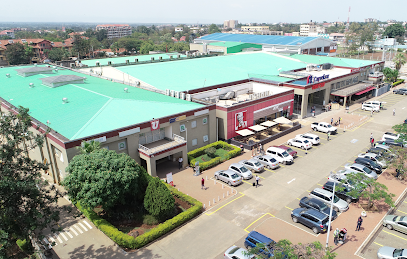
Dunga Hill Camp
Discover Dunga Hill Camp, a lakeside retreat in Kisumu, where nature meets culture with delicious grilled food and live music.
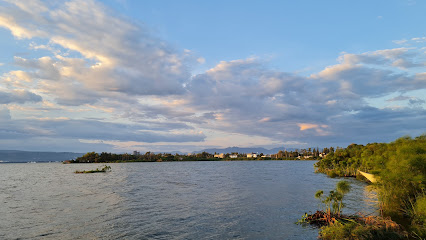
ACACIA PREMIER HOTEL KISUMU
Discover luxury and comfort at Acacia Premier Hotel Kisumu, your gateway to exploring the beauty of Lake Victoria and vibrant Kisumu.

The West End Shopping Mall
Explore the vibrant shopping and dining experiences at The West End Shopping Mall in Kisumu, where local culture meets modern retail.
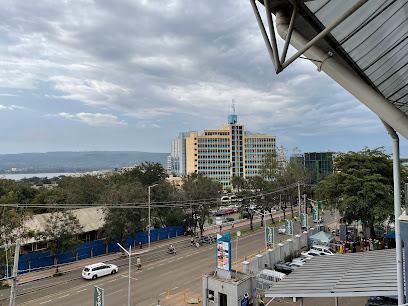
Kisumu International Airport
Discover the vibrant culture and stunning landscapes of Kisumu and Lake Victoria from Kisumu International Airport, your gateway to Kenya's beauty.
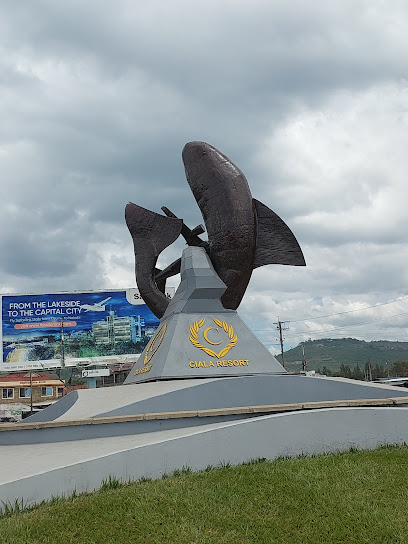
Ciala Resort - Best Hotel in Kisumu
Discover Ciala Resort in Kisumu, a luxurious retreat on Lake Victoria with stunning views, excellent dining, and a perfect blend of relaxation and adventure.
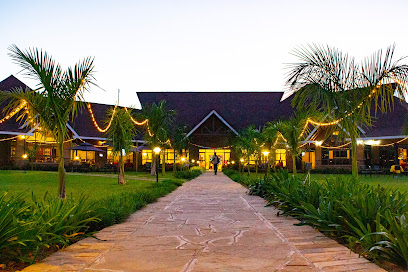
The Grand Royal Swiss Hotel, Kisumu
Experience luxury and comfort at The Grand Royal Swiss Hotel in Kisumu, your gateway to exploring the beauty of Kenya.

Mega City Mall
Discover Mega City Mall in Kisumu, a vibrant shopping destination offering diverse retail, delicious dining, and exciting entertainment for all.
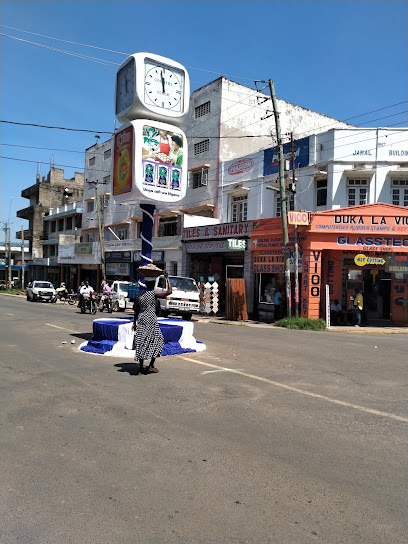
Mega Plaza
Explore Mega Plaza in Kisumu for an unmatched shopping experience blending local charm with modern conveniences.
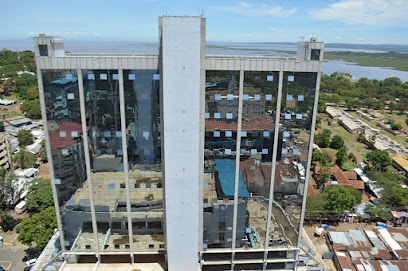
Kenya Wildlife Impala Park
Explore the rich wildlife and stunning landscapes of Kenya Wildlife Impala Park, a premier destination for nature lovers in Kisumu.
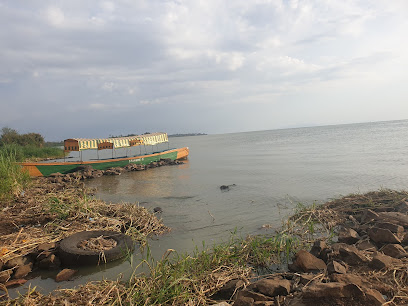
Kisumu Museum
Explore the cultural heritage and natural history of western Kenya at Kisumu Museum, a captivating attraction for all travelers.
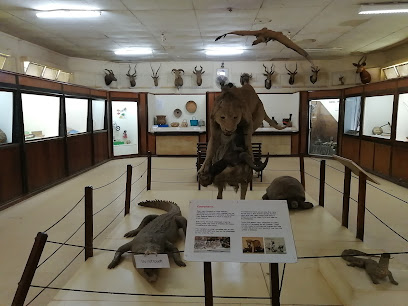
Sarova Imperial Kisumu - Hotel in Kisumu
Discover the perfect blend of comfort and local culture at Sarova Imperial Kisumu, your gateway to exploring the vibrant city and Lake Victoria.
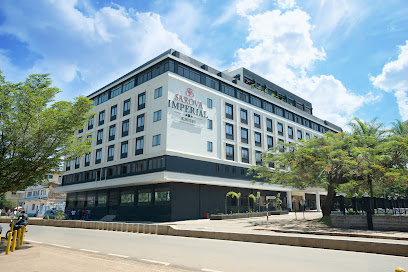
Hippo Point
Discover the vibrant beauty and wildlife of Hippo Point, a premier tourist attraction offering unforgettable boat tours and stunning views of Lake Victoria.
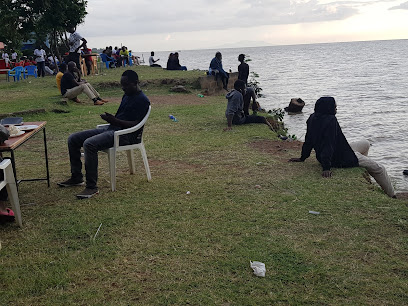
Kenyatta Sports Ground
Discover the vibrant pulse of Kisumu at Kenyatta Sports Ground, where sports and community come alive amidst lush greenery and local culture.
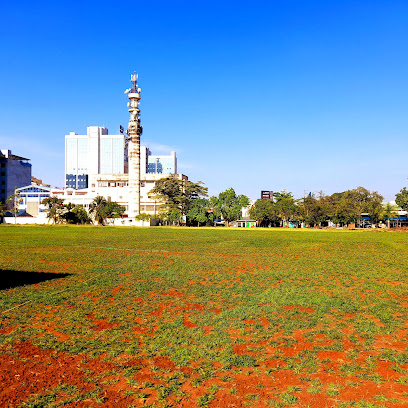
Alleyways Beer Garden
Experience the vibrant atmosphere of Alleyways Beer Garden in Kisumu, where local flavors meet refreshing beverages in a charming outdoor setting.
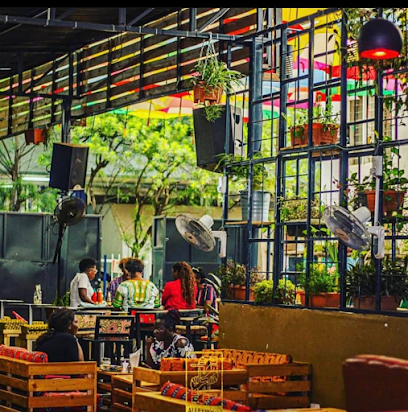
Unmissable attractions to see
Kisumu Museum
Uncover the vibrant history and culture of Kenya at Kisumu Museum, a captivating destination for tourists and culture enthusiasts.
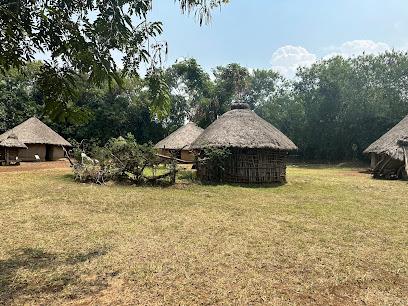
Hippo Point
Explore Hippo Point in Kisumu, a stunning tourist attraction with boat tours, wildlife sightings, and breathtaking views of Lake Victoria.
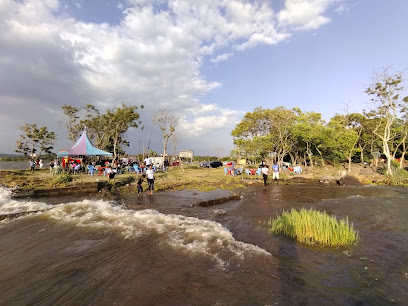
Kakamega Forest
Discover the enchanting Kakamega Forest, Kenya's last tropical rainforest, rich in biodiversity and adventure for nature lovers.
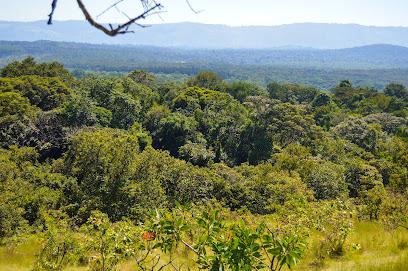
Dunga Wetland Swamp Boardwalk
Explore the vibrant ecosystem at Dunga Wetland Swamp Boardwalk, a birdwatcher's paradise in Kisumu, Kenya, renowned for its stunning landscapes and rich biodiversity.
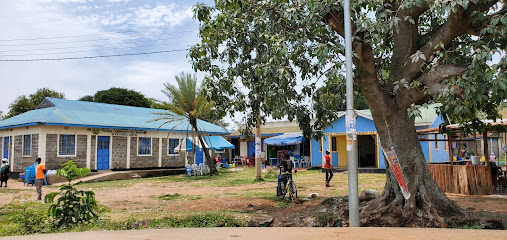
KWS-Kisumu Impala Sanctuary
Discover the beauty of wildlife at KWS-Kisumu Impala Sanctuary, where nature and conservation meet in a breathtaking landscape.
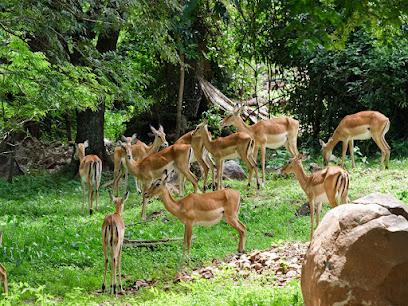
Freedom Park
Explore the lush landscapes and cultural richness of Freedom Park in Kisumu, a serene escape for tourists seeking tranquility and local experiences.
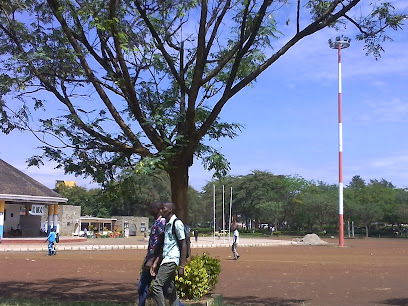
Impala Park Camping Site
Discover the serene beauty of Impala Park Camping Site in Kisumu, where wildlife encounters and nature adventures await every traveler.
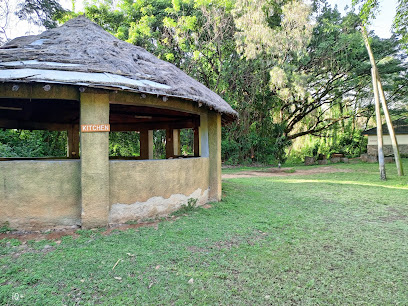
Jamhuri Victoria Park
Discover the serene beauty of Jamhuri Victoria Park in Kisumu, a lush escape ideal for picnics, family outings, and nature walks.
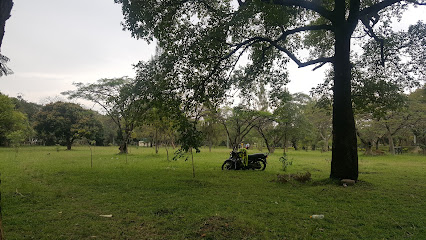
Ndere Island National Park
Discover the breathtaking landscapes and rich wildlife of Ndere Island National Park, an eco-tourism paradise on Lake Victoria in Kenya.
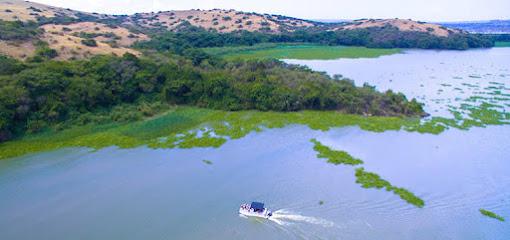
Oile Park Kisumu
Discover the serene beauty of Oile Park in Kisumu, an ideal destination for relaxation, family outings, and enjoying nature's tranquility.
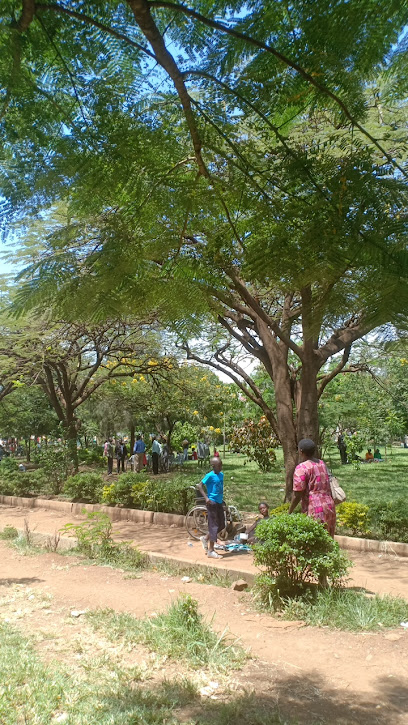
Impala Park Ostrich Pen
Experience the beauty of nature at Impala Park Ostrich Pen in Kisumu, where majestic ostriches roam and tranquility awaits every visitor.
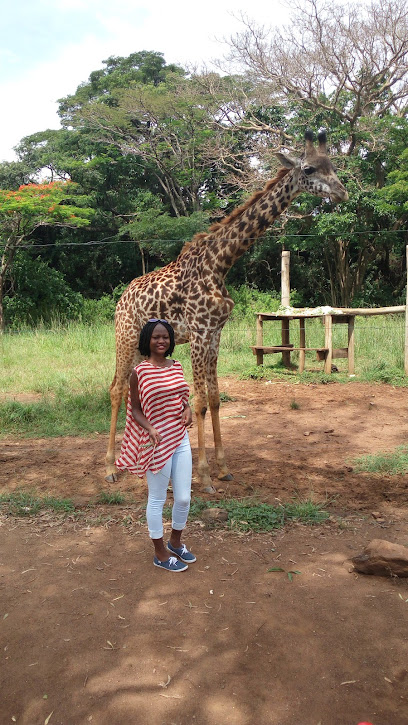
Dunga Beach
Experience the tranquility of Dunga Beach, a stunning lakeside destination rich in culture and natural beauty, perfect for relaxation and exploration.
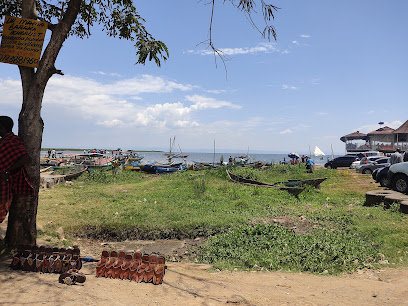
KB Park
Experience the serene beauty of KB Park in Kisumu, a perfect retreat for relaxation and outdoor activities amidst lush greenery.
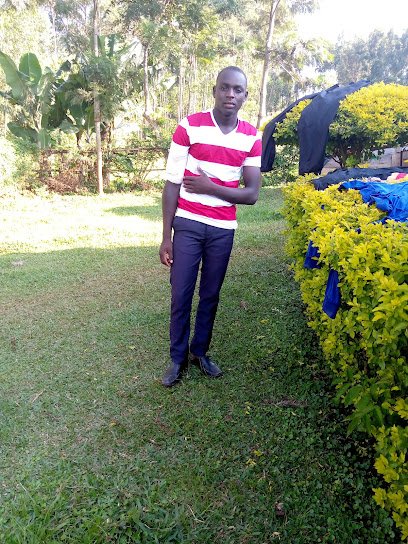
Mega Plaza Mini Rest Park
Discover the tranquility of Mega Plaza Mini Rest Park in Kisumu, a lush green oasis perfect for relaxation and family outings amidst vibrant local life.
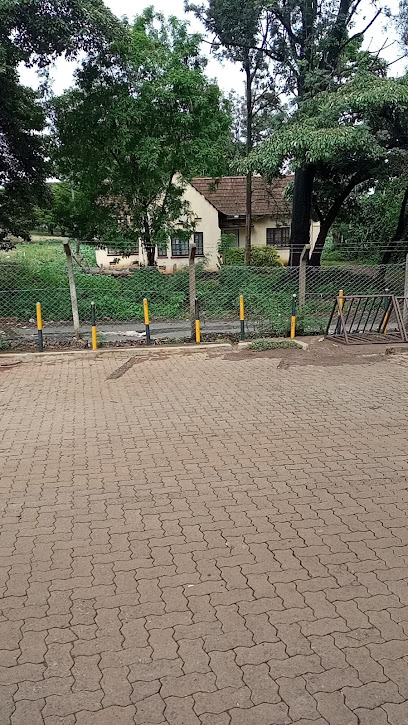
The Deck
Discover tranquility at The Deck in Kisumu, a beautiful garden oasis perfect for relaxation and nature walks amidst vibrant flora.
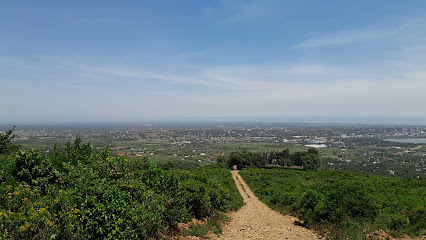
Essential places to dine
Java House - West End Mall, Kisumu
Discover Java House in Kisumu's West End Mall: A delightful restaurant offering diverse dishes and exquisite coffee in a welcoming ambiance.
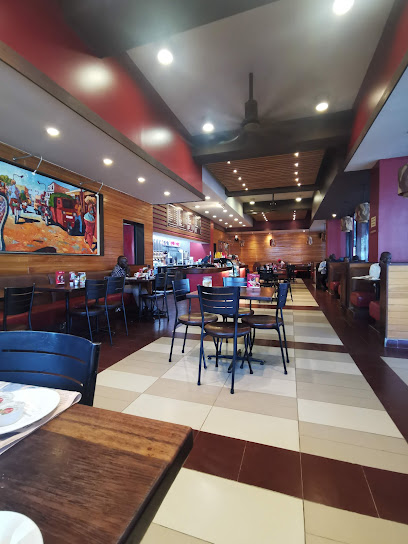
Joventure Restaurant
Experience the rich tapestry of African flavors at Joventure Restaurant in Kisumu - where every meal tells a story.

Mon Ami
Experience culinary excellence at Mon Ami in Kisumu's Mega City Mall - where local flavors meet international cuisine in a cozy setting.
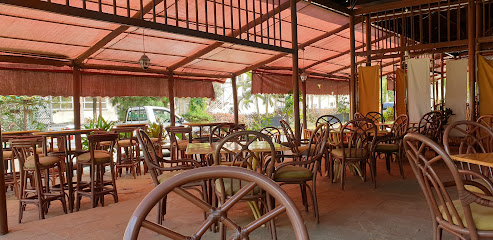
KALONGO-LONGO RESTAURANT & ACCOMMODATION
Discover the taste of Kisumu at Kalongo-Longo Restaurant & Accommodation - where delicious food meets warm hospitality.
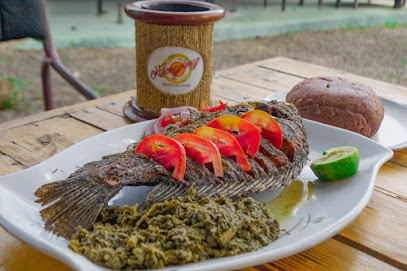
Samba Marina Bar & Restaurant
Experience vibrant nightlife and delicious grill cuisine at Samba Marina Bar & Restaurant in Kisumu, where flavor meets fun.
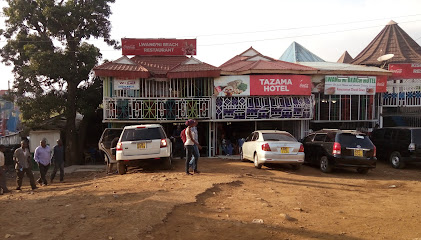
Lalu's Fast Foods ltd
Experience the vibrant flavors of Kenya at Lalu's Fast Foods Ltd in Kisumu - where local cuisine meets comfort food.
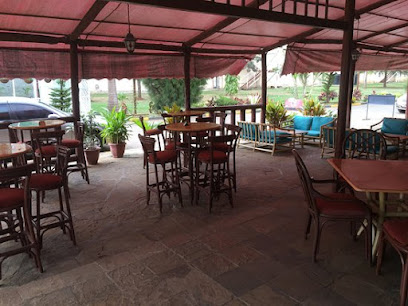
City Food Court
Explore diverse flavors at City Food Court in Kisumu – a culinary haven for food lovers with local and international dishes.
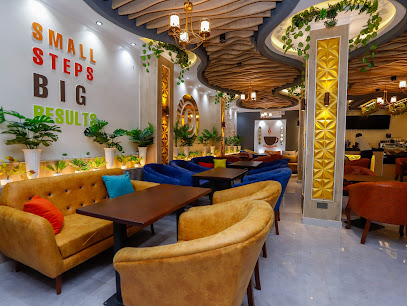
Pwani Dishes
Experience the authentic taste of coastal Kenya at Pwani Dishes – where flavor meets tradition in every bite.
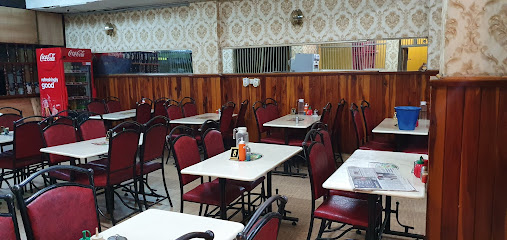
Garam Masala
Experience authentic Indian cuisine at Garam Masala in Kisumu – where every dish tells a flavorful story.
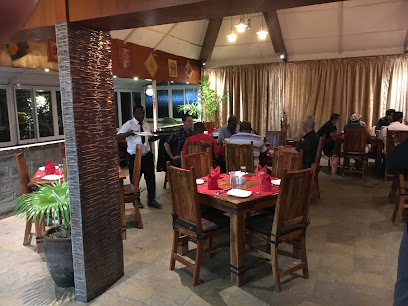
Oriental chinese restaurant
Experience authentic Chinese cuisine at Kisumu's top dining destination – where flavors meet tranquility.
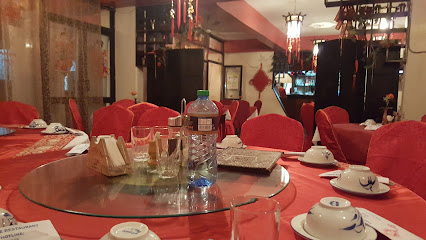
Alfa Star Dishes
Discover culinary delights at Alfa Star Dishes in Kisumu - where local flavors meet international cuisine in a warm atmosphere.
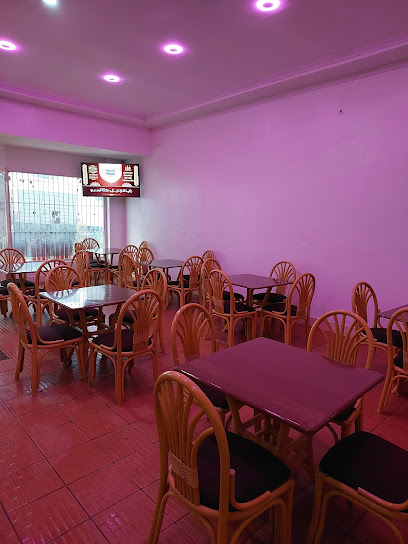
El Paso Bar& Restaurant
Experience the flavors of Kisumu at El Paso Bar & Restaurant - where local cuisine meets vibrant atmosphere.
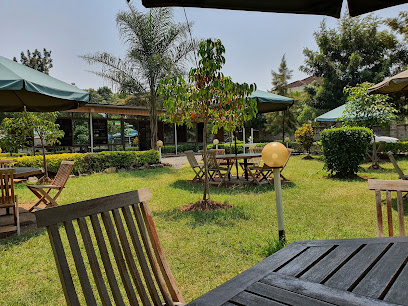
Kims Choma Zone
Experience the rich flavors of Kisumu at Kims Choma Zone - a premier barbecue destination offering authentic Kenyan cuisine.
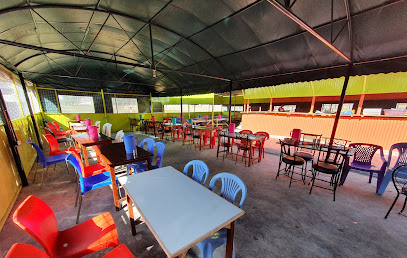
Tilapia Beach Restaurant
Discover delightful local flavors at Tilapia Beach Restaurant with stunning views over Lake Victoria in Kisumu.
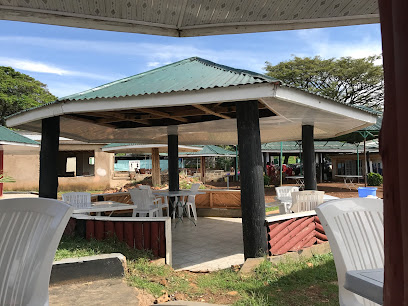
Masrur Cafe & Restaurant
Discover the vibrant flavors of Kisumu at Masrur Cafe & Restaurant, where local cuisine meets international flair in a cozy setting.
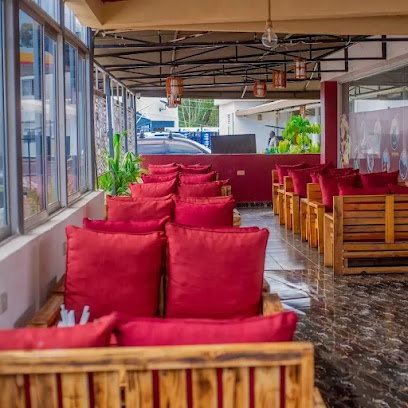
Markets, malls and hidden boutiques
United Mall Kisumu
Discover the ultimate shopping and dining experience at United Mall Kisumu, featuring international brands, local eats, and endless entertainment options.
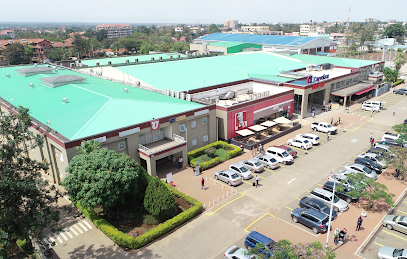
The West End Shopping Mall
Discover The West End Shopping Mall in Kisumu, where shopping meets entertainment in a vibrant and culturally rich atmosphere.
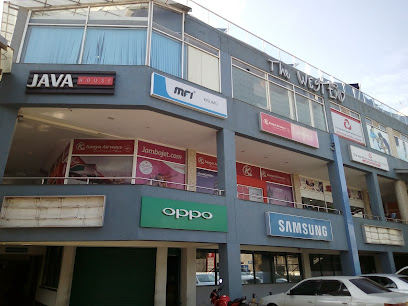
Naivas Kisumu CBD
Explore Naivas Kisumu CBD for an authentic shopping experience, rich in local flavors and convenience in the heart of Kisumu.
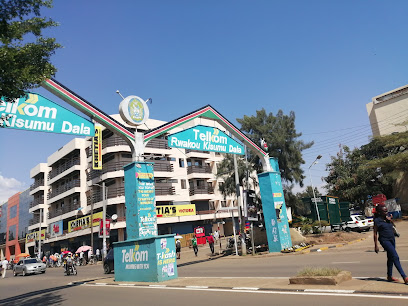
Mega City Mall
Discover Mega City Mall, Kisumu’s ultimate shopping destination, combining a vibrant atmosphere with diverse shopping and dining options.
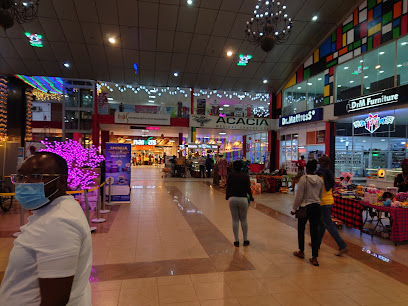
Mega Plaza
Experience the vibrant shopping, dining, and entertainment at Mega Plaza, Kisumu's premier shopping mall offering a taste of local culture.
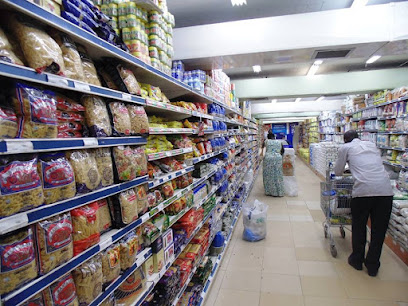
Naivas
Discover the heart of Kisumu at Naivas Grocery Store, where local flavors and fresh produce await every traveler.
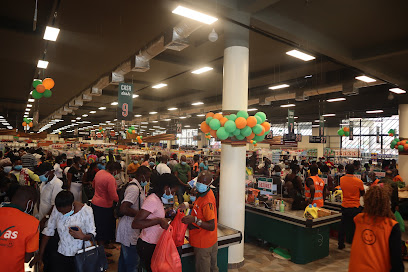
Jade Collections Kisumu Branch
Explore unique fashion at Jade Collections in Kisumu, a shopping haven blending local artistry with modern trends for every style.

Kids Avenue Kenya - Baby shop
Shop at Kids Avenue Kenya in Kisumu for unique, high-quality baby clothing and exceptional customer service for families visiting the region.
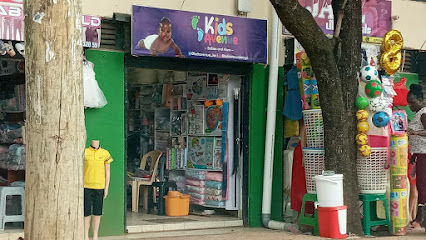
Woolworths
Discover Woolworths in Kisumu's West End Mall, your go-to destination for stylish clothing and everyday essentials at affordable prices.
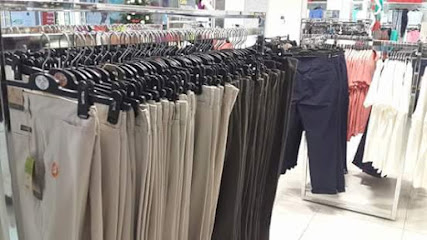
Samsung Shop West End Mall
Discover the latest Samsung devices and innovative technology at the Samsung Shop in West End Mall, Kisumu, where tech meets style.
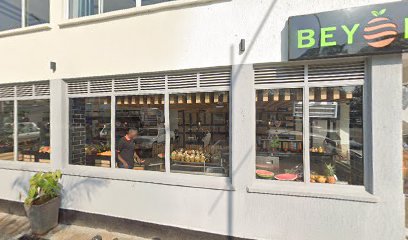
Sparky_gifts
Explore Sparky Gifts in Kisumu: Your destination for unique souvenirs, handcrafted treasures, and a taste of Kenyan culture.
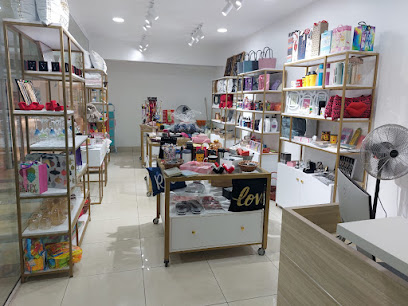
Kisumu Cossim Mega City KiliShop
Explore Kisumu's vibrant shopping scene at Cossim Mega City KiliShop, where local culture meets convenience in a dynamic retail environment.
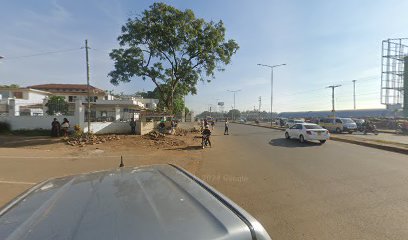
City Walk Kenya LTD - Kisumu Mega
Explore the stylish offerings at City Walk Kenya - Kisumu Mega, your go-to destination for shoes, bags, and accessories in Kisumu.
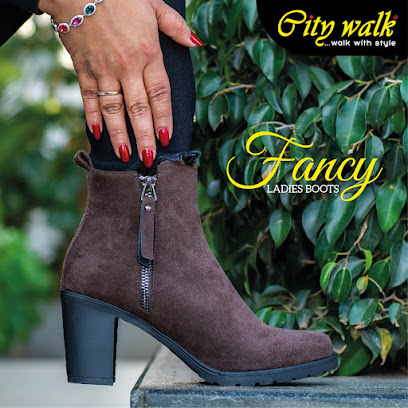
KIINI FASHION SHOP
Explore unique local fashion and craftsmanship at Kiini Fashion Shop in Kisumu, where every garment tells a story and supports the community.

A To Z Ltd
Explore the vibrant fashion scene of Kisumu at A To Z Ltd, where local styles meet global trends in a welcoming atmosphere.
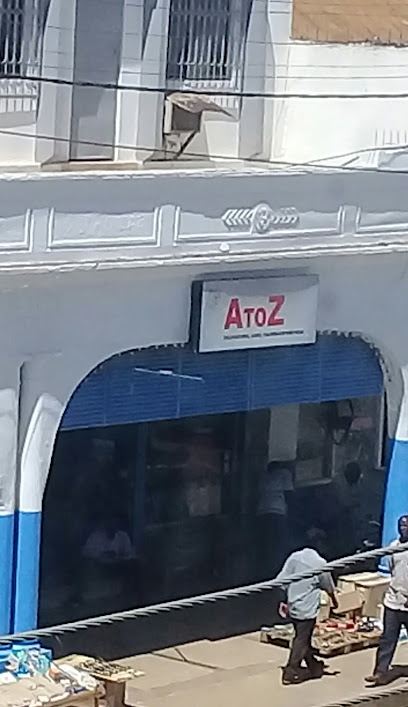
Essential bars & hidden hideouts
Dondez Club
Discover the lively nightlife at Dondez Club in Kisumu, where great drinks and entertainment unite for an unforgettable evening.
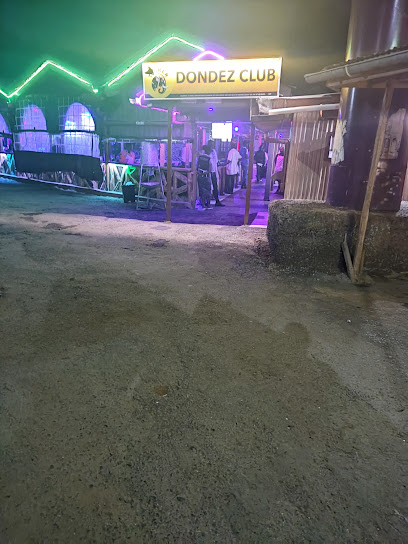
Samba Marina Bar & Restaurant
Experience the vibrant flavors and nightlife of Kisumu at Samba Marina Bar & Restaurant, where exquisite grills meet an energetic atmosphere.
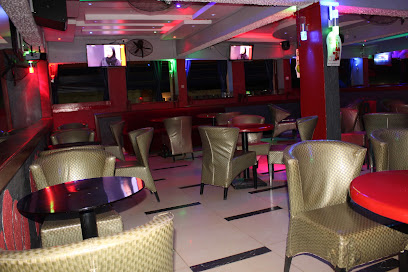
Da Bar
Experience vibrant nightlife and entertainment at Da Bar in Kisumu, where good vibes and great drinks create unforgettable moments.
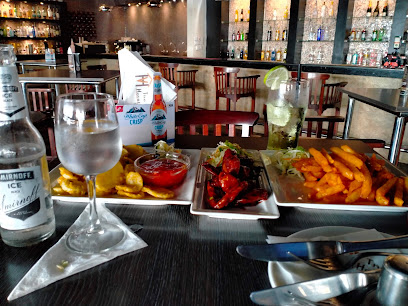
Ram XB Pub
Discover the lively nightlife of Kisumu at Ram XB Pub, where local drinks and vibrant entertainment create unforgettable experiences.
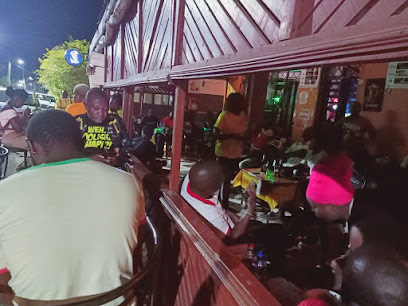
Stanbradox Pub
Experience the lively atmosphere and local culture at Stanbradox Pub, a vibrant hotspot in Kisumu perfect for unwinding with drinks and music.
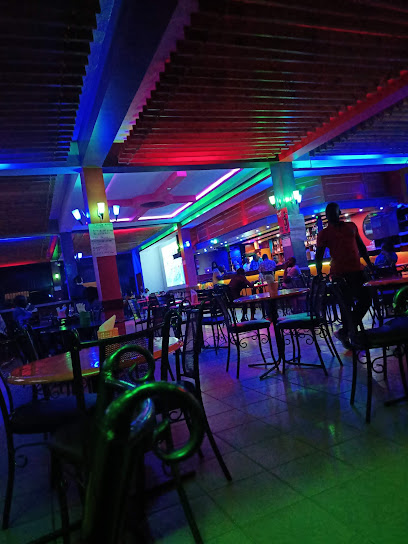
The Place Pub
Experience the vibrant nightlife at The Place Pub in Kisumu, where local brews meet a lively atmosphere and cultural entertainment.
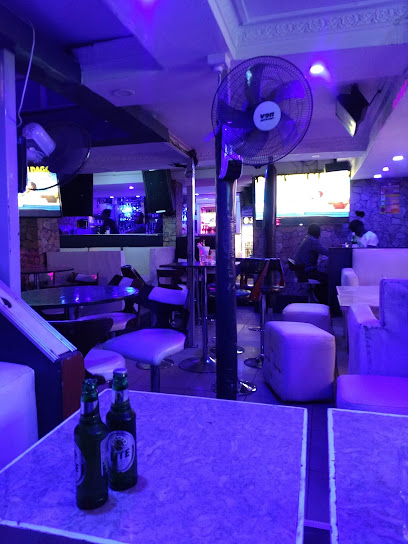
Signature Bar And Restaurant
Discover the lively atmosphere and delightful cuisine at Signature Bar And Restaurant in Kisumu, a perfect spot for tourists to relax and enjoy local flavors.
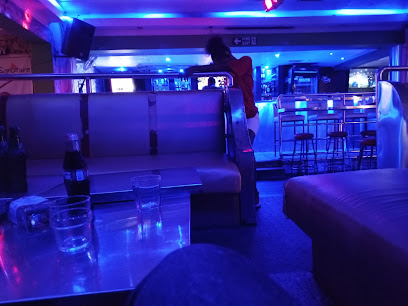
Davundu Bar & Restaurant
Discover the lively atmosphere and diverse flavors at Davundu Bar & Restaurant, a must-visit dining destination in Kisumu, Kenya.
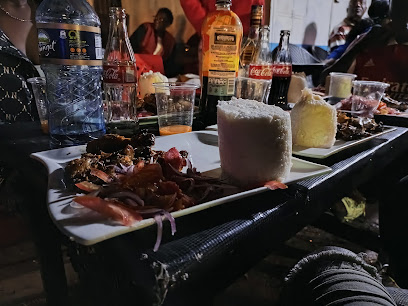
Double M Lounge (Kisumu)
Experience the vibrant nightlife at Double M Lounge in Kisumu, a bar offering a delightful mix of drinks and local culture.
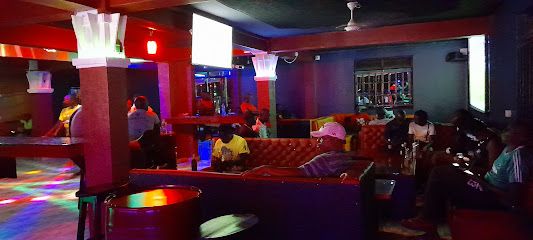
Miniciti Pub
Discover local flavors and vibrant nightlife at Miniciti Pub, a top destination for food and fun in Kisumu.
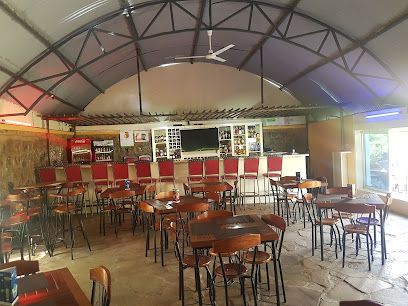
Highway Bar and Restaurant
Discover the vibrant flavors and lively atmosphere at Highway Bar and Restaurant, a must-visit spot for food lovers in Kisumu.
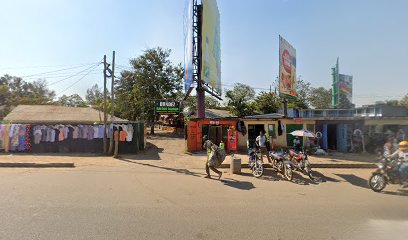
Mayor's Pub
Discover the lively spirit of Kisumu at Mayor's Pub, where local drinks and vibrant entertainment await you.
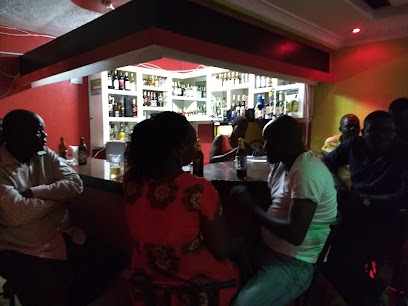
Hide Out Bar & Restaurant
Discover the vibrant atmosphere and diverse culinary offerings at Hide Out Bar & Restaurant in Kisumu, your perfect stop for local flavors and relaxation.
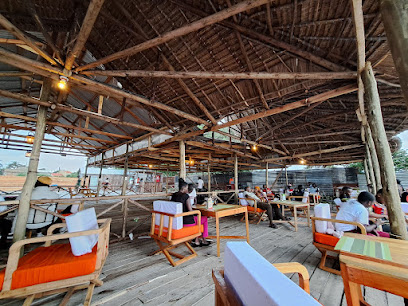
Home Lounge Kisumu
Discover the vibrant nightlife of Kisumu at Home Lounge, a perfect blend of great drinks, friendly service, and a lively atmosphere.
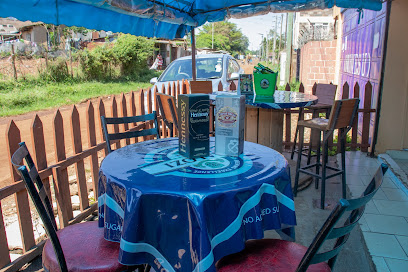
Local Phrases
-
- HelloJambo
[jahm-boh] - GoodbyeKwaheri
[kwah-heh-ree] - YesNdio
[n-dee-oh] - NoHapana
[hah-pah-nah] - Please/You're welcomeTafadhali
[tah-fah-dah-lee] - Thank youAsante
[ah-sahn-teh] - Excuse me/SorrySamahani
[sah-mah-hah-nee] - How are you?Uko aje?
[oo-koh ah-jeh] - Fine. And you?Poa. Na wewe?
[poh-ah. nah weh-weh] - Do you speak English?Unasema Kiingereza?
[oo-nah-seh-mah kee-in-geh-reh-zah] - I don't understandSielewi
[see-eh-leh-wee]
- HelloJambo
-
- I'd like to see the menu, pleaseNingependa kuona menu, tafadhali
[nee-ngeh-pehn-dah koo-oh-nah meh-noo, tah-fah-dah-lee] - I don't eat meatSili nyama
[see-lee nyah-mah] - Cheers!Mambo!
[mahm-boh] - I would like to pay, pleaseNingependa kulipa, tafadhali
[nee-ngeh-pehn-dah koo-lee-pah, tah-fah-dah-lee]
- I'd like to see the menu, pleaseNingependa kuona menu, tafadhali
-
- Help!Msaada!
[msah-ah-dah] - Go away!Nenda zako!
[nen-dah zah-koh] - Call the Police!Piga polisi!
[pee-gah poh-lee-see] - Call a doctor!Piga daktari!
[pee-gah dahk-tah-ree] - I'm lostNimepotea
[nee-meh-poh-teh-ah] - I'm illNinaumwa
[nee-nah-oom-wah]
- Help!Msaada!
-
- I'd like to buy...Ningependa kununua...
[nee-ngeh-pehn-dah koo-noo-noo-ah] - I'm just lookingNatazama tu
[nah-tah-zah-mah too] - How much is it?Ni bei gani?
[nee bayee gah-nee] - That's too expensiveHuo ni ghali sana
[hoo-oh nee gah-lee sah-nah] - Can you lower the price?Unaweza kupunguza bei?
[oo-nah-weh-zah koo-poon-goo-zah bayee]
- I'd like to buy...Ningependa kununua...
-
- What time is it?Saa ngapi?
[sah-ah ngah-pee] - It's one o'clockNi saa moja
[nee sah-ah moh-jah] - Half past (10)Nusu ya (kumi)
[noo-soo yah (koo-mee)] - MorningAsubuhi
[ah-soo-boo-hee] - AfternoonMchana
[m-chah-nah] - EveningJioni
[joh-ee-oh-nee] - YesterdayJana
[jah-nah] - TodayLeo
[leh-oh] - TomorrowKesho
[keh-shoh] - 1Moja
[moh-jah] - 2Mbili
[m-bee-lee] - 3Tatu
[tah-too] - 4Nne
[neh-neh] - 5Tano
[tah-noh] - 6Sita
[see-tah] - 7Saba
[sah-bah] - 8Nane
[nah-neh] - 9Tisa
[tee-sah] - 10Kumi
[koo-mee]
- What time is it?Saa ngapi?
-
- Where's a/the...?Iko wapi...?
[ee-koh wah-pee] - What's the address?Anwani ni gani?
[ahn-wah-nee nee gah-nee] - Can you show me (on the map)?Unaweza kunionyesha (kwenye ramani)?
[oo-nah-weh-zah koo-nee-oh-nyeh-shah (kweh-neh rah-mah-nee)] - When's the next (bus)?Basi la pili ni saa ngapi?
[bah-see lah pee-lee nee sah-ah ngah-pee] - A ticket (to ....)Tiketi (kwenda ....)
[tee-keh-tee (kwehn-dah)]
- Where's a/the...?Iko wapi...?
History of Kisumu
-
Kisumu, situated on the shores of Lake Victoria, has been a vital trading hub for centuries. The region was initially inhabited by the Luo people, who migrated from the Sudanese Nile Valley around the 15th century. The Luo community established a vibrant culture, with fishing, cattle herding, and agriculture as their main economic activities.
-
In the late 19th century, Kisumu gained strategic importance during the British colonial period. Originally named Port Florence in 1901, the town became the terminus of the Uganda Railway, connecting the interior of East Africa to the Indian Ocean port of Mombasa. This development turned Kisumu into a critical transportation and commercial center.
-
Following Kenya's independence in 1963, Kisumu continued to grow as a commercial and transportation hub. The city became an administrative center in the Nyanza Province and saw significant investments in infrastructure and education. The establishment of institutions like Maseno University further contributed to its regional importance.
-
Kisumu has played a pivotal role in Kenya's political landscape. The city is a stronghold of the Luo community and has been the base for many influential political figures, including Jaramogi Oginga Odinga, Kenya's first Vice President, and his son Raila Odinga, a prominent opposition leader. Political rallies and events in Kisumu often draw large crowds and significant media attention.
-
Today, Kisumu is a bustling city with a diverse economy. The fishing industry remains vital, with Nile perch and tilapia being the primary catches from Lake Victoria. Additionally, the city has seen growth in sectors like manufacturing, trade, and tourism. Modern infrastructure projects, including the expansion of Kisumu International Airport and the development of the Kisumu Port, are further enhancing its economic prospects.
-
Kisumu boasts a rich cultural heritage, deeply rooted in Luo traditions. The city hosts various cultural festivals and events, such as the annual Lake Victoria Festival, which celebrates the region's music, dance, and arts. The Kisumu Museum is a key attraction, offering insights into the local history and culture, including traditional Luo artifacts and exhibits.
Kisumu Essentials
-
Kisumu is accessible via Kisumu International Airport (KIS), which receives both domestic and international flights. Alternatively, you can reach Kisumu by road from Nairobi, which is approximately a 6-7 hour drive. There are also regular buses and shuttle services operating between Nairobi and Kisumu. For those preferring rail travel, the Madaraka Express offers a scenic route from Nairobi to Kisumu.
-
Within Kisumu, transportation options include taxis, boda-bodas (motorcycle taxis), tuk-tuks, and matatus (minibuses). Taxis are generally more comfortable and safer for tourists, while matatus are a more budget-friendly option. Car hire services are also available for those who prefer to drive themselves. Boda-bodas and tuk-tuks are best for short distances but make sure to negotiate the fare before starting your journey.
-
The official currency in Kenya is the Kenyan Shilling (KES). Credit and debit cards are widely accepted in major hotels, restaurants, and supermarkets, but it is advisable to carry some cash for smaller establishments and markets. ATMs are available throughout Kisumu, and most accept international cards. Currency exchange services are also available at banks and exchange bureaus.
-
Kisumu is generally safe for tourists, but standard precautions should be taken. Avoid walking alone at night, especially in poorly lit areas. High-crime areas that tourists should be cautious of include the Nyalenda and Manyatta neighborhoods. Always keep an eye on your belongings in crowded places and avoid displaying valuables openly. Stick to well-known tourist areas and use reputable transport services.
-
In case of emergency, dial 999 for police assistance or 112 for medical emergencies. The main hospital in Kisumu is Jaramogi Oginga Odinga Teaching and Referral Hospital, which provides comprehensive medical services. Pharmacies are widely available for minor health issues. Ensure you have travel insurance that covers medical emergencies. For assistance, you can also contact your country's embassy or consulate in Nairobi.
-
Fashion: Do dress modestly, especially when visiting religious sites and rural areas. Avoid wearing very revealing clothing. Religion: Do respect local customs and traditions. When visiting places of worship, ensure you are dressed appropriately, covering your shoulders and knees. Public Transport: Do be respectful of fellow passengers. Avoid loud conversations and giving unsolicited advice. Greetings: Do greet people with a handshake and a friendly smile. Using simple Swahili phrases like 'Jambo' (Hello) can be appreciated. Eating & Drinking: Do try local foods such as Nyama Choma (grilled meat) and Ugali. Don’t drink tap water; always opt for bottled or boiled water.
-
To experience Kisumu like a local, visit the Kibuye Market, one of the largest open-air markets in the region, where you can buy fresh produce and local crafts. Take a stroll along the Kisumu Pier for scenic views of Lake Victoria. Engage with the locals, who are usually very friendly and willing to share insights about their culture. Don’t miss the sunset at Dunga Hill Camp, a popular spot for both locals and tourists.
Trending Landmark in Kisumu
-
United Mall Kisumu
-
Dunga Hill Camp
-
ACACIA PREMIER HOTEL KISUMU
-
The West End Shopping Mall
-
Kisumu International Airport
-
Ciala Resort - Best Hotel in Kisumu
-
The Grand Royal Swiss Hotel, Kisumu
-
Mega City Mall
-
Mega Plaza
-
Kenya Wildlife Impala Park
-
Kisumu Museum
-
Sarova Imperial Kisumu - Hotel in Kisumu
-
Hippo Point
-
Kenyatta Sports Ground
-
Alleyways Beer Garden
Nearby Cities to Kisumu
-
Things To Do in Eldoret
-
Things To Do in Kitale
-
Things To Do in Mbale
-
Things To Do in Nakuru
-
Things To Do in Jinja
-
Things To Do in Naivasha
-
Things To Do in Kampala
-
Things To Do in Entebbe
-
Things To Do in Nairobi
-
Things To Do in Lira
-
Things To Do in Masaka
-
Things To Do in Mwanza
-
Things To Do in Bukoba
-
Things To Do in Gulu
-
Things To Do in Arusha















